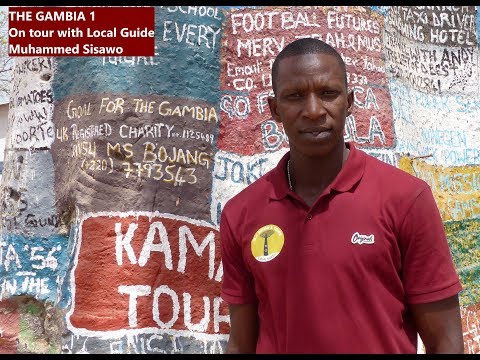
In the vibrant heart of The Gambia, Africa’s smallest mainland country, lies a hidden gem that is a must-visit for nature lovers and wildlife enthusiasts: the Monkey Park in Banjul. In 2018, I had the unique opportunity to explore this fascinating sanctuary under the guidance of Muhammed Sisawo, a local expert renowned for his knowledge of Gambian wildlife and passionate commitment to conservation.
#### Arrival and First Impressions
Our journey began on a warm, sunny morning in January when we met Muhammed at the entrance of Monkey Park. With its lush greenery and tranquil ambiance, the park offered an immediate escape from the bustling city streets of Banjul. Muhammed greeted us with a wide smile and deep enthusiasm about showing us around his beloved park.
As we entered, the sounds of urban chaos were replaced by the melodic chirping of birds and rustling leaves—a reminder that we were stepping into a haven for numerous creatures. The air was fresh with the scent of tropical flora.
#### The Guided Tour
Muhammed was not only knowledgeable but also imbued with an infectious passion for each species residing within the park. As we ventured deeper into the forested area, he shared fascinating details about its history and purpose.
Monkey Park is home to various species of monkeys including Green Vervets and Red Colobus Monkeys. Each species has adapted uniquely to their environment as Muhammed explained their behavioral patterns, diet, and social structures. What was compelling was his emphasis on the symbiotic relationship between these primates and their habitat; they thrived because of it and contributed to its propagation.
One memorable moment was witnessing a family of Green Vervets interacting above our heads. Their playful nature made them crowd favorites although they maintained some distance from our group—something Muhammed explained was crucial for both their comfort and our safety.
#### Conservation Education
Throughout our tour, conservation was a recurring theme. Muhammed spoke ardently about challenges such as habitat loss due to urban expansion and illegal pet trade that threaten local wildlife. He pointed out how ecotourism, such as our visit to Monkey Park, plays an essential role in maintaining sustainable habitats for these animals while providing economic benefits to local communities.
He detailed ongoing initiatives aimed at educating locals about wildlife laws and rehabilitation programs which have helped increase species populations previously dwindling due to human activity.
#### Beyond Monkey Watching
Muhammed ensured that our experience extended beyond just observing monkeys by integrating aspects of Gambian culture into the tour. He explained various medicinal plants found in or around Monkey Park which are used in traditional Gambian medicine.
Additionally, he introduced us to local artisans who create handicrafts inspired by wildlife. This not only showcased Gambian creativity but also illustrated how community involvement is pivotal in conservation efforts.
#### Conclusion
The experience at Monkey Park under Muhammed Sisawo’s guidance proved enlightening in every sense—educationally enriching with personal engagement that fostered greater appreciation for The Gambia’s natural heritage. It laid bare how intertwined human lives are with those of other creatures sharing this planet; a vital lesson on respect and coexistence that transcends geographical boundaries.
For those planning to visit The Gambia or looking specifically into eco-friendly tours around Banjul, spending time at Monkey Park guided by an expert like Muhammed can transform your understanding not only about wildlife but also about how each one can contribute towards making ecological balance more than just an ideal.
